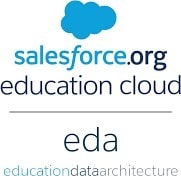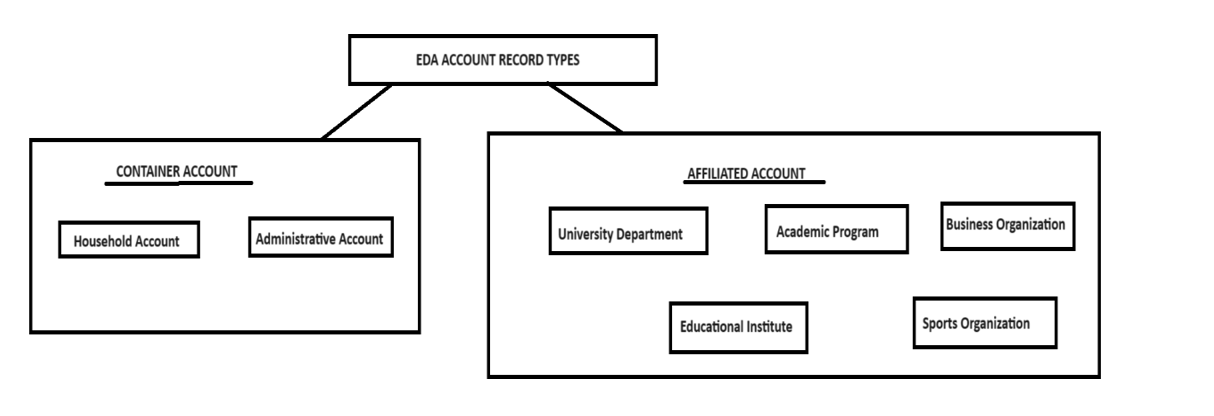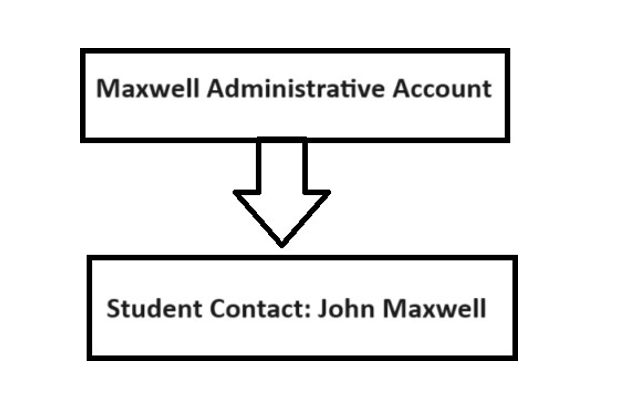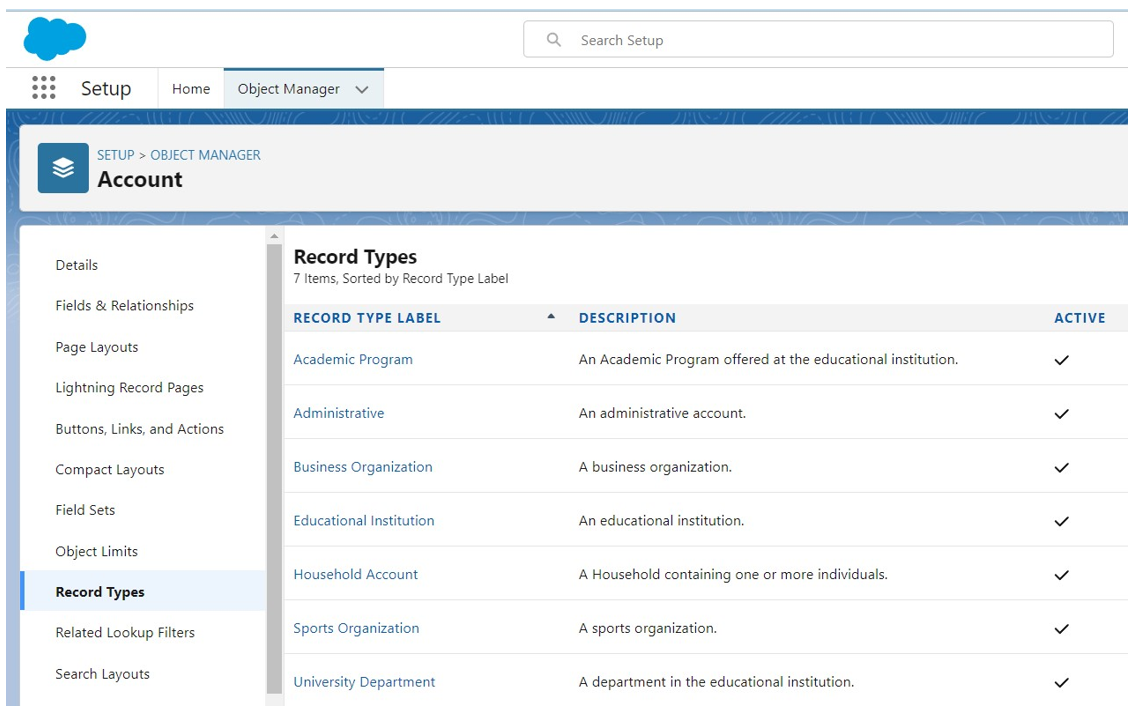The Education Data Architecture (EDA) serves as a meticulously designed data framework tailored specifically for educational institutions. Developed through collaboration with Salesforce.org partners and customers, EDA delivers pre-built functionality to streamline data organization within Salesforce. It acts as a virtual pantry stocked with a variety of tools, connecting educational institutions of all sizes with students, alumni, parents, and faculty in diverse ways. Picture EDA as a well-organized pantry, ensuring that all your data ingredients are neatly arranged for easy accessibility—making it a must-have resource.

Before the introduction of EDA, education administrators faced a time-consuming process, investing months and substantial IT resources to structure their data. The absence of standardized solutions meant creating data architectures from scratch. EDA changes the game by allowing administrators to set up their systems in half the time it traditionally took for a Salesforce deployment. The efficiency it brings to the table is truly remarkable.
Consider this scenario: you need to compile a list of senior students participating in the track team for an upcoming awards event before their graduation. Additionally, you want to send event invitations to the parents of these students. Leveraging EDA, along with Salesforce reports and campaigns, accomplishes these tasks seamlessly.
At its core, EDA utilizes standard Salesforce objects like accounts and contacts, complemented by custom objects such as relationships and affiliations, to monitor an array of connections. These connections, systematically tracked and organized within EDA, simplify the process of locating essential information within Salesforce.
Moreover, EDA efficiently manages data related to students’ program and course enrolments. Curious about the number of classes a student has left before completing their degree? Interested in identifying how many first-year students are enrolled in the English program? EDA provides the capability to answer these questions and much more, offering a comprehensive solution for educational institutions seeking data clarity.
In essence, EDA emerges as a game-changer, revolutionizing the data organization landscape for educational administrators. Its integration with standard Salesforce objects and incorporation of custom elements make it a versatile tool for tracking and managing connections across various educational facets. As you delve into the realm of EDA, you’ll discover a more efficient, streamlined approach to handling data, allowing you to focus on what truly matters—providing an enhanced experience for students, alumni, parents, and faculty within the educational community.
What is the EDA Account Model?
The EDA account model closely aligns with the standard Salesforce account model, providing all the robust capabilities of Salesforce while eliminating the need for extensive customization to meet specific requirements. While EDA allows for business tracking using standard Salesforce objects such as opportunities and cases, it introduces a specialized application tailored to the unique workflows of educational audiences.
Within the EDA account model, the standard Salesforce account object functions as a container account. EDA introduces two distinct types of container accounts: the administrative account and the household account.

Container Account:
The Container Account, a pivotal concept in Salesforce Education Cloud, comes in two forms—Household Account and Administrative Account.
Household Accounting:
A Household Account encapsulates a group of Contacts, commonly including not only the student but also other individuals linked to the same household. Use Cases: Household Accounts are particularly relevant for tracking family units, allowing educational institutions to maintain connections with parents, guardians, and other household members associated with a student.

Administrative Account
An Administrative Account serves as an Account-level representation of a
Contact, typically a student, establishes a one-to-one relationship. Each Administrative Account contains precisely one Contact.
Use Cases: Administrative Accounts are instrumental in managing individual student records, offering a concise overview of key details associated with a specific Contact.

Regardless of the account model you opt for, Salesforce automatically generates the container account (be it administrative or household) each time you establish an independent contact—meaning a contact not associated with another account. The default nomenclature for the newly created account is derived from the last name of the corresponding contact.

Affiliated Account: An Affiliated Account is a representation of an organizational entity connected to a Contact. This could be a department overseeing academic programs, a sports team, or a business collaborating with the institution. The Affiliated Account is a crucial element for tracking and managing relationships within the educational ecosystem.
University Department: The University Department record type takes center stage when focusing on academic or administrative departments responsible for administering specific programs. Whether it’s the Sociology Department overseeing academic programs or the Office of the Registrar managing administrative functions, this record type ensures a tailored approach to tracking and organizing departmental information.
Academic Program: Embracing a broader scope, the Academic Program record type plays a pivotal role in encapsulating degree- or credential-granting programs within higher education institutions. Beyond higher ed, it extends its reach to encompass various academic programs, student support initiatives, or recreational programs in primary and secondary education settings. This versatility allows institutions to efficiently manage a spectrum of educational programs under a unified framework.
Business Organization: The Business Organization record type serves as the gateway to external collaborations, representing organizations outside the educational institution that choose to partner with it. Whether it’s a vendor providing services, an internship sponsor facilitating student experiences, or organizations from the private, nonprofit, or public sectors engaging in collaborative initiatives, this record type ensures a dedicated space for managing these external relationships.
Educational Institution: At the core of educational data organization, the Educational Institution record type encompasses the entire institution or individual schools within it. This record type serves as the foundational structure for tracking and managing crucial information related to the institution’s overarching structure. It provides a comprehensive overview, allowing administrators to efficiently navigate and manage the diverse facets of an educational institution.
Sports Organization: For institutions with a focus on athletic programs, the Sports Organization record type takes the lead. Dedicated to sports teams and related organizations within the institution, this record type ensures streamlined management of athletic activities. Whether it’s the Women’s Soccer Team or the Intramural Coed Hockey League, institutions can use this record type to centralize information related to sports teams and enhance their engagement within the education community.
Sample Uses for Affiliated Accounts:
University
- Academic Departments: Track various academic departments within the university.
- Athletics Programs: Monitor sports teams and related activities.
- Student-led Campus Organizations: Keep tabs on student organizations contributing to campus life.
- Technology Transfer Offices: Manage initiatives related to technology transfer and research.
- Alumni Associations: Foster connections with alumni through dedicated accounts.
- Degree Programs: Organize undergraduate, graduate, and continuing education programs.
K-12
- School Departments: Track different departments within the school.
- Parent-Teacher Associations: Manage parent-teacher associations for effective communication.
- Organizational Partners: Monitor partnerships with external organizations.
- District Level: Track member schools, district departments, and agency partners.
Any Educational Institution:
- Administrative Departments: Monitor administrative units ensuring smooth institutional operations.
- Facilities and Plant Operations: Track maintenance and operational aspects of the institution.
Conclusion:
In essence, the EDA account model streamlines the use of standard Salesforce features while introducing tailored functionalities that align seamlessly with the intricacies of educational processes. This approach ensures a cohesive and efficient experience for educational institutions without compromising the flexibility and power of the Salesforce platform.
Leave A Comment